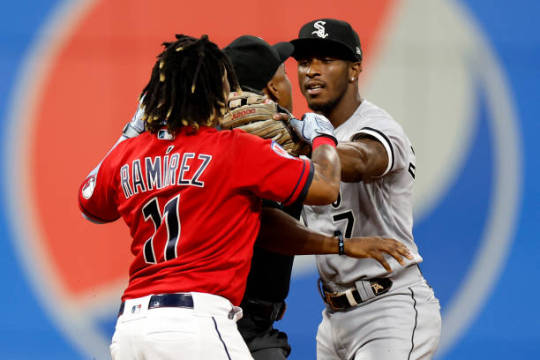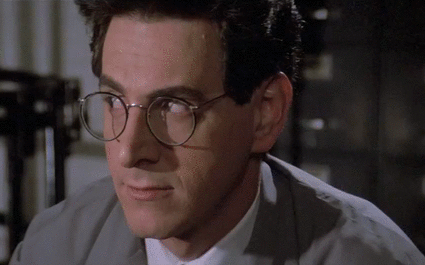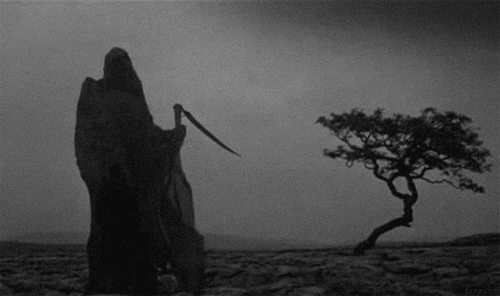#malachi moore
Explore tagged Tumblr posts
Text



#white sox#chicago white sox#cleveland guardians#im gonna rewrite history a lil bit with these images#cause it looks like the sox have the upperhand here#but trust they did NOT#tim anderson#jose ramirez#michael kopech#malachi moore
6 notes
·
View notes
Text
Strong Start, Questionable Finish for Jets 2025 Draft
The New York Jets were ready to continue this 2025 Aaron Glenn/Darren Mougey era with a strong 2025 NFL Draft class, while they did very well to start in their first three rounds, the back end of the draft seemed a bit questionable. No matter what we thought, many said this year’s draft wouldn’t be filled with big-time names. But the Jets went for need, and not for splash. They accomplished that…
#2025 NFL Draft#Aaron Glenn#Arian Smith#Armand Membou#Azareye&039;h Thomas#DArren Mougey#Football#Francisco Mauigoa#Malachi Moore#Mason Taylor#NFL#NY Jets#Tyler Baron
0 notes
Text



#mikey moore#tyrese hall#maksim paskotsi#dominic solanke#tyrell ashcroft#callum olusesi#will lankshear#jaden williams#kieran morgan#rio kyerematen#luca gunter#pele arganese mcdermott#malachi hardy#junai byfield#jahziah linton#lucas bergvall
5 notes
·
View notes
Text
Captain Kirk is Back From the Dead in Star Trek: The Last Starship #comics #comicbooks #startrek
#adrian bonilla#collin kelly#comic books#Comics#francesco francavilla#heather moore#idw publishing#jackson lanzing#malachi ward#michael cho#skyler patridge#star trek#star trek: the last starship
1 note
·
View note
Text
SINNERS FACE CLAIM RECS:
BLACK ACTORS:
- Denzel Washington (70, The Great Debaters (2007))
- Giancarlo Esposito (67, Black/ Italian. The Get Down (2016))
- Cyril Nri (64, Wicked Little Liars (2023))
- Forest Whitaker (64, The Great Debaters (2007))
- Jeffrey Wright (59, boardwalk empire (2012))
- Coleman Domingo ( 55, Ma Raineys black bottom (2020) Rustin (2023))
- Chadwick Bozeman (Ma Raineys black bottom (2020))
- Mahershala Ali (51, Green Book (2018))
- Lucian Msamati (49, See how they run (2022))
- David Oyelowo (48, Small Island (2009) The Butler (2013) Selma (2014), See How They Run (2022))
- Andre Holland (45, The Knick (2014))
- Nate Parker (45, The Great Debaters (2007))
- Leslie Odem Jr (43, Murder on the Orient express (2017))
- Nnamdi Asomugha (43, Sylvie’s Love (2020))
- Jermaine Williams (42, The Great Debaters (2007))
- Ashley Walters (42, Small Island (2009))
- Aml Ameen (39, The Porter (2022))
- Kingsley Ben-Adir (38, Peaky Blinders (2013))
- Zephryn Taitte (38, Call the Midwife (2012))
- Tolu Ogunmefun (36, See how they run, 2022))
- Jovan Adepo (36, Babylon (2022))
- Malachi Kirby (35, Wicked Little Letters (2023))
- Denzel Whitaker (35, The Great Debaters (2007))
- Jacob Anderson (34, Interview with the vampire (2022))
- Paapa Essiedu (34, Murder on the Orient express (2017))
- Jeremy pope (32, Hollywood (2020))
- Daryl McCormack (32, Peaky Blinders (2013))
- Jay Reeves (30, Six triple Eight (2024))
- Jordan Bolger (30, Peaky Blinders (2013))
- Xavier Mills (30, Interview with the vampire (2022))
- Shameik Moore (30, The Get Down (2016))
- Justice Smith (29, The Get Down (2016))
- Skylan Brooks (26, The Get Down (2016))
- Jaden Smith (26, The Get Down (2016))
BLACK ACTRESSES:
- Angela Bassett (66, The Rosa Parks Story (2002) American Horror Story (2013))
- Viola Davis (59, Ma Raineys black bottom (2020))
- Halle Berry (58, introducing Dorathy Danbury (1999))
- Kimberly Elise (58, The Great Debaters (2007))
- Aunjanue Ellis-Taylor (56, The Birth of a Nation (2016), Women of the Movement (2022))
- Sophie Okonedo (56, Death on the Nile 2020))
- Anika Noni Rose (52, The Good Lord Bird (2020, Showtime), Dreamgirls (2006))
- Nikki Amuka-Bird (49, Small Island (2009))
- Olunike Adelili (48, The Porter (2022))
- Naomi Harris (48, Small Island (2009))
- Kerry Washington (48, Six triple Eight (2024))
- Milauna Jackson (48, Six triple Eight (2024))
- Freema Agyeman (46, Doctor Who (2005))
- Dana Gourrier (45, Interview with the vampire (2022))
- Tessa Thompson (41, Sylvie’s Love (2020))
- Aja Naomi King (40, Sylvie’s Love (2020))
- Nicole Beharie (40, 42 (2013))
- Jurnee Smollett (38, Lovecraft Country (2020) The Great Debater (2007) Eve’s Bayou (1997))
- Pearl Mackie (38, Doctor Who (2005))
- Pippa Bennett- Warner (36, See how they run))
- Laura Harrier (35, Hollywood (2020)
- Taylour Page (34, Ma Raineys black bottom (2020))
- Moriah Brown (34, Six triple Eight (2024))
- Lolly Adefope (34, Wicked Little Letters (2023))
- Sheila Atim (34, The Pale Horse (2020))
- Kalyne Coleman (33, Interview with the vampire (2022))
- Georgina Campbell (32, The Pale Horse (2020))
- Ebony Obsidian (31, Six triple Eight (2024))
- Pepi Sonuga (31, Six triple Eight (2024))
- Leticia Wright (31, Death on the Nile (2020))
- Tahirah Sharif (31, The Haunting of Bly Manor (2020))
- Evelyn Miller (Flowers in the attic: origin (2022))
- Johanna Elmina Moise (Ma Raineys black bottom (2020))
- Stefanée Martin (The Get Down (2016))
- Djouliet Amara (30, The porter (2022))
- Kylie Jefferson (30, Six triple Eight (2024))
- Renee Bailey (30, Call the Midwife (2012))
- Sarah Jeffrey (29, Six triple Eight (2024))
- Shanice Williams (28, Six triple Eight (2024))
- Mallori Johnson (28, Kindred (2022))
- Delainey Hayes (26, Interview with the vampire (2022))
- Bailey Bass (21, Interview with the vampire (2022))
- Mia Isaac (21, Black Cake (2023))
CHINESE AMERICAN-ACTORS:
- BD Wong, (64, stars in many historical plays)
- Tzi Ma (62, The Man in the High Castle (2025) The Farewell (2019))
- Ludi Lin (37, Marco Polo (2014) The Ghost Bride (2022))
- Darren Chris (38, Chinese/Filipino/ Spanish heritage, Hollywood (2020)).
CHINESE AMERICAN ACTRESSES:
- Lucy Liu (56, in Shanghai Noon(2000))
- Stephanie Sy (48, The Porter (2022))
- Fala Chen (43, Shang-Chi and the Legend of the Ten Rings (2021))
- Stephanie Hsu (34, The Marvelous Mrs Maisel (2017))
CHOCTAW ACTORS:
- Wes Studi (77, Cherokee with Choctaw ancestry)
- Moses Brings plenty (55, Oglala Lakota, sometimes listed with Choctaw relatives through intertribal marriage. Yellowstone (2018))
- Martin Sensmeier (39, Tlingit, Koyukon-Athabascan, and partial Choctaw descent)
- Cody Lightning (38, Cree and Choctaw decent)
CHOCTAW ACTRESSES:
- Kimberly Norris Guerrer (58, Choctaw)
- Brenda Schad (57, Choctaw)
- DeLanna Studi (48, Cherokee/ Choctaw heritage)
- Julia Jones (44, Choctaw father)
- Mia sable (41, Choctaw heritage)
- Lily Gladstone (38, possibly Choctaw heritage) Killers of the flower moon (2023))
- Morningstar Angeline (33, Navajo, Chippewa, Blackfeet, Shoshone, and Choctaw)
OTHER INDIGENOUS ACTORS:
- Gil Birmingham (71, Comanche and Spanish heritage. Yellowstone (2018)
- Zahn McClarnon (58, Blackfeet. Dark Winds (2022))
- Adam Beach (52, First Nations)
- Kiowa Gordon (35, Dark Winds (2022))
- Asivak Koostachin (31, Cree-Inuk. (Duster (2025))
- D’Pharaoh Woon-A-Tai (23, Oji-Cree descent)
OTHER INDIGENOUS ACTRESSES:
- Irene Beard (57, Iñupiaq and a French Canadian/Cree.)
- Marisa Quintanilla (44, hispanic and lipan apache heritage)
- Jessica Matten (39, Red River Metis-Cree. Dark Winds (2022))
- Kaniehtiio Horn (38, Mohawk Nation)
- Shauna Baker (36, Carrier Dene Nation)
- Q'orianka Kilcher (35, Quechua & Huachipaeri Nations. The New World (2005) Princess Kaiulani (2009))
- Devery Jacobs (31, Kahnawake Mohawk Territory)
- Amber Midthunder (28, Thai-Chinese, Hunkpapa Lakota, Sisseton Dakota, and Sahiyaiyeskabi Assiniboine descent)
- Paulina Alexis (24, First Nations)
SOUTH ASIAN ACTORS:
- Naveen Andrews (56, Indian. The English Patient (1996))
- Sendhil Ramamurthy (51, India. The Flash (2014 period flashbacks))
- Raza Jaffrey (50, White/Indian. The English Patient (1996) The Serpent Queen (2022))
- Sacha Dhawan (41, Indian. Mr Selfridge (2013) Doctor Who (2005))
- Nikesh Patel (39, Indian. Indian Summers (2015))
- Ali Fazil (38, Indian. Victoria & Abdul (2017))
- Shared Latif (36, White/ Scottish/Pakistani. Shazad Latif (2020))
- Dev Patel (35, Indian. The Personal History of David Copperfield (2019))
- Assad Zaman (35, Interview with the vampire (2022))
- Himesh Patel (34, Indian. Enola Holmes 2 (2022))
SOUTH ASIAN ACTRESSES:
- Parminder Negra (49, Indian. Begravia (2020))
- Anjana Vasan (38, Indian. Black Mirror (2023) Wicked Little Letters (2023) Towards Zero (2025))
- Mandip Gil (37, Indian. Doctor Who (2005))
- Aysha Kala (34, Indian Summers (2015))
- Varada Sethu (33, Indian. Doctor Who (2023))
- Amita Suman (27, Nepalese. The Outpost (2018) Shadow and Bone (2021))
- Tanya Maniktala (27, Indian. A suitable boy (2020))
- Mimi Keene (26, White/ Pakistani. Towards Zero (2025))
OTHER ASIAN ACTORS:
- Rick Yune (53, Korean. Snow Falling on Cedars (1999))
- Andrew Koji (33, Japanese. Peaky Blinders (2013) Call the Midwife (2012))
OTHER ASIAN ACTRESSES:
- Arden Cho (39, Korean. Teen Wolf flashbacks (2011))
- Kim Go-eun (34, Korean. Exhuma (2024))
- Anna Sawai (32, Japanese. Shogun (2024))
LATINO ACTORS:
- Laz Alonso (51, Afro-Cuban. The Mysteries of Laura (2014))
- Pedro Pascal (50, Chilean. The Great Wall (2016))
- Diego Calva (33, Mexican. Babylon (2022))
LATINA ACTRESSES:
- Gina Ravera (59, Afro-Puerto Rican. The Great Debaters (2007))
- Penelope Cruz (51, Spanish. Murder on the Orient express (2017))
- Tessa Thompson (41, Afro-Panamanian. Passing (2021))
- Ariana Debose (34, Afro-Puerto Rican. West Side Story (2021))
- Michelle Vientimilla (32, Ecuadorian. Gotham (2014))
- Shryley Rodriguez (32, The Get Down (2016))
- Nuria Vega (30, Mexican. Billy the Kid (2022))
- Anya Taylor-Joy (29, Anglo-Argentinian. Peaky Blinders (2013))
- Herizen Guardiola (28, Cuban-Jamaican. The Get Down (2016))
- Rachel Zegler (24, Columbian/Polish. West Side Story (2021))
—
took an hour to make this list that includes the age, ethnicity (of some) and fit credit. I will continue edit it to add the period dramas/ credits that I found specifically from the 1800s to early to mid 1900s. pls check the heritage of these face claims just in case I’m wrong. but feel free to use! look forward to seeing them in your stories.

#sinners movie face claims#sinners fic#sinners#sinners 2025#x black!reader#x Asian!reader#x Chinese!reader#x indigenous American! reader#x Choctaw!reader#smokestack twins#smoke#stack#remmick sinners#stack sinners#smoke sinners#Annie sinners#Mary sinners#bo chow#bo sinners#grace sinners#delta slim#sammie Moore sinners#sinners face claims for fanfics#black reader#fanfic#wattpad#woc period drama face claims#moc period drama face claims#period drama face claims#southasian!reader
147 notes
·
View notes
Text

STARTING WITH M

MASCULINE︰ mac. macaulay. macauley. mack. maddox. maitland. major. makai. malachai. malachi. malakai. malcolm. malcom. malik. malon. manley. manny. manuel. marcelo. marco. marcos. marcus. mario. marion. mark. marley. marlin. marlon. marlowe. marlyn. marshal. marshall. martie. martin. marty. marvin. marvyn. mason. mat. mateo. mathew. mathias. matias. matt. matteo. matthew. matthias. mattie. matty. maurice. mauricio. maurie. maven. maverick. max. maxie. maximilian. maximiliano. maximillian. maximus. maxton. maxwell. maynerd. mayson. mccoy. mckinley. mel. melville. melvin. melvyn. memphis. meredith. merit. merle. merlin. merlyn. merrick. merv. mervin. mervyn. messiah. micah. michael. micheal. mick. mickey. micky. miguel. mike. mikey. milan. miles. milford. millard. miller. milo. milton. mitch. mitchell. mo. moe. mohamed. mohammad. mohammed. moises. monday. monroe. montague. monte. montgomery. monty. moralis. morgan. morley. morris. mort. morton. morty. moses. moshe. moss. muhammad. munro. munroe. murphy. murray. musa. myles. myron.

FEMININE︰ mabel. mac. macey. maci. mackalya. mackayla. mackenzie. macy. maddie. maddison. madeleine. madeline. madelyn. madilyn. madison. maeve. maggie. magnolia. maisie. makayla. makenna. makenzie. malani. malaya. malaysia. malia. malinda. maliyah. mallory. malory. marceleine. maren. margaret. margaux. margo. margot. maria. mariah. mariana. marianne. marie. marina. marlee. marleigh. marley. mary. maryanna. mavis. maxine. maya. mckenna. mckenzie. meadow. meera. megan. melanie. melina. melissa. melody. mena. meredith. mia. miah. miana. michaela. michelle. mila. milani. miley. millie. miracle. miranda. miriam. molina. molliana. molly. monica. morgan. mya. myla. myra.

NEUTRAL︰ mace. madden. maddix. mage. magenta. magic. maim. maine. maison. majesty. major. makari. malak. malice. malware. maple. marble. march. mari. marigold. marin. marion. marley. marlin. marlo. marlow. mars. marsh. marvel. mascara. masquerade. masyn. match. mauve. maven. mayday. mayhem. mayson. maze. mazi. mckinley. meadow. mecca. med. mega. melancholy. mellow. melody. memphis. mention. mercury. mercy. merengue. meridian. merit. merlin. merrick. merritt. merry. meteorite. metro. metronome. meyer. micah. micaiah. michigan. mickey. middle. midnight. mika. mikah. milan. miles. miller. million. minus. miracle. mirage. misery. misfit. misha. miss. mission. misty. model. monday. monitor. monroe. montana. montgomery. moon. moor. morgan. morse. moss. moth. muck. mud. murphy. mutt. myka. mykah. mystery. mystique.

27 notes
·
View notes
Text
Birthdays 12.1
Beer Birthdays
William Krug (1857)
Randy Mosher (1952)
RJ Trent (1968)
Susan Boyle
Five Favorite Birthdays
Morris; Belgian cartoonist (1923)
Mary Martin; actress and singer (1913)
Jeremy Northam; actor (1961)
Jaco Pastorius; jazz bassist (1951)
Richard Pryor; comedian, actor (1940)
Famous Birthdays
Andrew Adamson; New Zealand film director (1966)
Woody Allen; comedian, writer, film director (1935)
Carol Alt; model. actor (1960)
Micheline Bernardini; French dancer and model (1927)
Eric Bloom; rock guitarist (1944)
Jan Brett; author and illustrator (1949)
Candace Bushnell; writer (1958)
Richard Carrier; author (1969)
Billy Childish; English singer-songwriter, guitarist, and painter (1959)
Jonathan Coulton; singer-songwriter and guitarist (1970)
Julee Cruise; singer-songwriter, musician, and actress (1956)
John Densmore; rock drummer (1945)
David Doyle; actor (1929)
Étienne Maurice Falconet; French sculptor (1716)
Matt Fraction; comic book writer (1975)
Steve Gibb; singer-songwriter and guitarist (1973)
Sophie Guillemin; French actress (1977)
Judith Hackitt; English chemist (1954)
Annette Haven; adult actress (1954)
DeSean Jackson; football player (1986)
Tahar Ben Jelloun; Moroccan author and poet (1944)
Jonathan Katz; comedian and actor (1946)
Clark Kent; fictional character, Superman
Richard Keith; actor and drummer (1950)
Martin Klaproth; German chemist (1743)
Zoë Kravitz; actress, singer, and model (1988)
Jerry Lawson; electronic engineer and inventor (1940)
Jimmy Lyons; saxophonist (1931)
Emily McLaughlin; actress (1928)
Bette Midler; actor, singer (1945)
Bart Millard; singer-songwriter (1972)
Julia A. Moore; poet (1847)
Emily Mortimer; actor (1971)
Sandy Nelson; rock drummer (1938)
Jim Nesbitt; singer-songwriter and guitarist (1931)
Eligiusz Niewiadomski; Polish painter (1869)
Gilbert O'Sullivan; pop singer (1946)
Isaiah "Ikey" Owens; keyboard player (1975)
Billy Paul; soul singer (1934)
Chris Poland; guitarist and songwriter (1957)
Chanel Preston; porn actress (1985)
Lou Rawls; singer (1933)
Martin Rodbell; scientist (1925)
John Schlimm; writer (1971)
Karl Schmidt-Rottluff; German painter (1884)
Dick Shawn; comedian, actor (1923)
Sarah Silverman; comedian, actor (1970)
Rex Stout; English writer (1886)
Robert Symonds; actor (1926)
Malachi Throne; actor (1928)
Charlene Tilton; actor (1958)
Lee Trevino; golfer (1939)
Jane Turner; Australian actress (1960)
Marie Tussaud; wax modeler-maker (1761)
Mihály Vörösmarty; Hungarian poet (1800)
Treat Williams; actor (1951)
Vesta Williams; singer-songwriter and actress (1957)
Minoru Yamasaki; architect (1912)
4 notes
·
View notes
Text
Brainwaves Bios: Doctor Egon Spengler (1984)
The Brain of The Ghostbusters Doctor Egon Spengler, PhD

The brains of the Ghostbusters. He designed all the team's equipment and normally comes up with the plan to trap the ghosts. Overly analytical, Egon comes off as colder and more distant than he actually is.
"I collect spores, molds, and fungus."
Name
Full Legal Name: Egon Malachi Spengler
First Name: Egon
Meaning: From the Old German name 'Egino' derived from the element 'Agin' meaning 'Edge, Blade'
Pronunciation: EH-gawn
Origin: German
Middle Name: Malachi
Meaning: From the Hebrew name 'Mal'akhi' meaning 'My messenger' or 'My angel'
Pronunciation: MAL-a-kie
Origin: Hebrew, English, Biblical, Biblical Latin
Surname: Spengler
Meaning: Occupational surname literally meaning 'Metal worker' or 'Tin knocker'
Pronunciation: SPENG-ler
Origin: German
Titles: Doctor, Professor, Mr
Nicknames: Egie, Spengs
Characteristics
Age: 40
Gender: Male. He/Him Pronouns
Race: Human
Nationality: American Citizen. Born in America
Ethnicity: White
Birth Date: November 21st 1944
Sexuality: Aromatic, Straight
Religion: Jewish
Native Language: English
Known Languages: English, Hebrew, Spanish, Chinese, Japanese, Russian, Portuguese, Latin, Greek, Egyptian, Arabic
Relationship Status: Single
Astrological Sign: Scorpio
Actor: Harold Ramis

Geographical Characteristics
Birthplace: Cleveland, Cuyahoga County, Ohio
Current Residence: North Moore Street, New York, New York
Appearance
Height: 6'5" / 195 cm
Weight: 175 lbs / 79 kg
Eye Colour: Brown
Hair Colour: Brown
Hair Dye: None
Body Hair: Hairy
Facial Hair: Clean Shaven
Tattoos: (As of Jan 1984) None
Piercings: None
Scars: None
Health and Fitness
Allergies: None
Alcoholic, Smoker, Drug User: Clean
Illnesses/Disorders: None Diagnosed (Possibly Autistic)
Medications: None
Any Specific Diet: None
Relationships
Affiliated Groups: Ghostbusters (Founding Member)
Friends: Peter Venkman, Raymond Stantz, Winston Zeddemore, Janine Melnitz, Louis Tully (Sort-Of), Dana Barrett
Significant Other: None
Previous Partners: None of Note
Parents: Edmund Spengler (70, Father), Esther Spengler (73,Mother, Née Schneider)
Parents-In-Law: None
Siblings: Elon Spengler (40, Twin Brother)
Siblings-In-Law: Eliana Spengler (37, Elon's Wife, Née Salomon)
Nieces & Nephews: Edward Spengler (4, Nephew)
Children: None
Extras
Level of Education: Anthropology PhD, Astronomy PhD, Chemistry PhD, Engineering PhD, History PhD, Metallurgy PhD, Mycology PhD, Parapsychology PhD, Philosophy PhD, Physics PhD, Psychology PhD
Occupation: Ghostbuster
Employer: Ghostbusters
Expertise:
Genius with an Eidetic Memory
Polyglot
Physicist
Mycologist
Chemist
Historian
Parapsychologist
Anthropologist
Astronomer
Engineer
Metallurgist
Faults:
Sweet-Tooth
Perceived Lack of Emotions
Doesn't Have a Driver's License
Backstory: Egon Spengler grew up with no toys because his parents didn't believe in them. For unknown reasons, he had part of a Slinky but he straightened it. On October 29, 1969, Egon graduated from Columbia University with a degree in Psychology in the faculty of Psychobiology. On May 10, 1972, Egon graduated from New York University with a degree in Parapsychology. On June 26, 1980, Egon graduated from the Massachusetts Institute of Technology with a degree of philosophy in Nuclear Engineering. Egon was very interested in paranormal phenomenon, and worked with Raymond Stantz and Peter Venkman at Columbia University's Paranormal Studies Laboratory in Weaver Hall. He and Raymond studied paranormal literature in their spare time and were interested in theories of reincarnation. Egon developed the P.K.E. Meter to detect paranormal entities and phenomena with. Egon and Raymond were usually the first to interview case subjects, even people Peter called 'Schizos' no matter how far-fetched their stories were.
18 notes
·
View notes
Note
Speak Now [Taylor Swift]
Okay this has been 75% completed in my inbox long enough so I'm not doing the vault tracks as initially planned but! Just lmk if you do wanna see the vaults
also I am apparently so attached to assigning Enchanted to ships I should just do an edit series for couples. And Innocent was so hard to assign
Mine ; Thomas Mayfair (with Brady Mariano @randomestfandoms-ocs ), Ashton Daniels (with Blaine Anderson), Emmeline Fitzherbert (with Mal), Cassidy Fuchs (with Grace Chasity)
Sparks Fly ; Ruby Fitzherbert (with Evie), Natalia Finch (with Obie Bergmann)
Back To December ; Ashton Daniels (with Sam Evans), Sebastian Van Wyck (with Henry, pre-RWRB), Katherine Keller (young with FP Jones)
Speak Now ; Tiffany Holloway (with Max Jägerman), Jasmine Teller (with Jess Mariano), Robin Davidson (with Betsy McDonough), Theodosia Fortescue (with Colin Bridgerton), Sampson Lockhart (with Arabella Kingsley)
Dear John ; Belladonna Callow (with Malachi), Gabriel Legume (with the unnamed ex), Genevieve Sterling (with Hiram Lodge)
Mean ; Felicity Moore, Cassidy Fuchs, CJ Kelly
The Story Of Us ; Genevieve Sterling (with Hiram Lodge), Steve Schuester (with Jesse St James), Serafina Hollander (with Tristan Dugray), Solana Reed (with Val), Carrie Ryan (with Noah Puckerman)
Never Grow Up ; Chloe Brown (with Eloise Sol @randomestfandoms-ocs ), Lottie Tyler (with Rose Tyler), Silas Green (with Hannah Foster)
Enchanted ; Leticia Beaumont (with Colin Bridgerton), Arabella Kingsley (with Sampson Lockhart), Calliope Angelos (with Nora Holleran), Kendall Frost (with Beatrice Mountchristen-Windsor), Cassie Rose (with Annabeth Chase), Vincent James (with Jenny Banks), Tamora Snow (with Lucy Gray Baird), Charles Pond (with Clara Oswald), Odelia Roth (with David Nolan & Odessa Pavlova)
Better Than Revenge ; Gabriel Legume (with Ben, Audrey's POV), Delilah Curdle (@ Betty Cooper), Catalina Cabrera (with Dan Humphrey, Serena's POV), Carrie Ryan (honestly this is just Rachel @ Carrie for all of their shared boyfriends)
Innocent ; Chloe Brown, Ginevra Gothel
Haunted ; Carrie Ryan (with Noah Puckerman), Steve Schuester (with Jesse St James), Wrenley Daring (with Jay), Gabriel Legume (with Harry Hook), Victor Chase (with Billy Loomis), Lorelai Cooper (with Chuck Clayton)
Last Kiss ; Steve Schuester (with Jesse St James), Carrie Ryan (with Sam Evans), Ashton Daniels (with Sam Evans), Thomas Mayfair (with Lane Kim), Tiffany Holloway (with Max Jägerman in most timelines), Catalina Cabrera (with Nate Archibald)
Long Live ; Sage Rowe, Nathan Price, Ashton Daniels, Carrie Ryan, Silas Green, Cassidy Fuchs, Ivy Perkins, Abigail James, Felicity Moore, Zeke Beiste
Ours ; Arabella Kingsley (with Sampson Lockhart), Karina Jimenez (with Brittany Pierce), Felix Dosier (with Finn Hudson), Ashton Daniels (with Blaine Anderson), Gabriel Legume (with Ben), Theo Gleason (with Jess Mariano)
Superman ; Carrie Ryan (with Jesse St James), Silas Green (with Lex Foster), Sebastian Van Wyck (with Henry Hanover-Stuart-Fox, pre RWRB), Katherine Keller (with FP Jones), Madeline Stevens (with Frank Delfino)
Send me an album and, if I know the artist, I will try to associate to every song an oc/ship/crossover
3 notes
·
View notes
Text
Match Review: Manchester United U21s 2-0 Tottenham Hotspur U21s
Lads, it's only Spurs.

Goals from Malachi Sharpe in the first half and Jack Moorhouse in the second secured a valuable three points in the U21PL that moved United into third place in the league after what had been a slow start to the season.
United took the lead 36 minutes in after a weird bit of play from Spurs keeper Aaron Joseph Maguire, well out of his box playing as almost a CB. His dithering on the ball allowed Sharpe to close him down, Obi to win the loose ball, and an instant bounce pass to fall back into the feet of Malachi Sharpe for an easy low driven finish into the goal.
Spurs before and after this were very competitive; almost identical passing stats for possession and accuracy, if not fractionally higher than United, but United's greater comfort running with the ball and having a go was evident. That being said, Oliver Irow the Spurs no9 and Tyrese Hall the no10 both looked very comfortable and perhaps could be the next big things out of their academy - like Mikey Moore - to break through and nab some first team minutes.

Sharpe could have added a second just before half time but he hit a tame shot wide of the left post from close range, and after the break United immediately picked up from the same position; Jack Moorhouse fizzing a shot at Maguire which was tipped over.
Offensive full backs in Amass and Kamason is quite bold for United's U21s, which explains why Spurs got the chances off they did, but Murray, Fredricson, and keeper Elyh Harrison - with the supporting full backs - did defend confidently.
United would then double their lead and secure the win in the 73rd minute. A backline clearance from Harry Amass near the corner flag looped into space for Jack Moorhouse to run onto. Then, from the middle of United's half, he raced the length of the pitch away from Max Robson to tuck away a close range finish past Maguire. Elite.
With United in need of more 10s in Ruben Amorim's first team squad, it's hard not to look at the left sided attacking position of Moorhouse and his comfort on the ball, his pace, strength, agility, and shooting, and think that he's not worth a cameo. Injury has been an issue for him and Shea Lacey - who I also rate very highly and would suit the right 10 - but regardless, Moorhouse's return to action and subsequent form cannot be overlooked. I'm aware he has been training with the first team, so the brass are aware of him like Kukonki, Obi, Kone etc, but the question is when?
---
Next up for the U21s is a tough home tie against second place Fulham on Monday February 17. United have a game in hand but sit seven points behind the Londoners, so we need to win here and the game in hand to stay in contention for a late title push.
youtube
#manchester united#man u#man united#man utd#manchester reds#travis binnion#chido obi#malachi sharpe#aaron maguire#jack moorhouse#oliver iroh#tyrese hall#u21PL#harry amass#jaydan kamason#sekou kone#shea lacey#godwill kukonki#elyh harrison#manchester united u21s#tottenham hotspur u21s#Youtube
1 note
·
View note
Text
welcome.
one's nickname: @[name]ofDogwood
• Samantha D. Byrne as Fushi
• Vicente Alcatraz as Jayce Tails
• Selene Thorne as Herta
• Elijah Briar as Hoshina Soshiro
• Hanrietta Ravenswood as Re-I Mayer
• Alexei Lewis as Hayden Stewart
• Ellias Derrick as Itoshi Rin
• Artemis Selene Bloodthorne as Akame
• Yehezkiel Areli Sergius as W. J. Moriarty
• Alaric Sylvester Delacroix as KDJ
• Hezekiah Cedric Nightgale as B. Lamberg
• Michelle Judith as Nei Takarai
• Anastasia Theresa Weiss as Illyasviel
• Erion Bakirtzis as Denji
• Wistoria Ashrahan as Phrolova
• Artery Silas Bloodthorne as Suzuya
• Cedric Blancford as Nikolai Gogol
• Ian Basset as Yoshida
• Jeriah as YJH
• Jacques Ivanovich as Yomi
• Manuel Abascal as Aki Hayakawa
• Gracielle Epherie as Nene Yashiro
• Bernadette as Oak Casket
• Elliot Hargraves as Haitani
• Macbeth Constantine as Rahu
• Alexis Filbert as Mikaela
• Aki Soenser as Kaedehara
• Zachary Hayes as Natsuki
• Cornelius Pierre as Chrollo
• Serenity Dionysus as Osaragi
• Miriah Allison Young as Mizi
• Callum Seth Moore as Luka
• Malachi Montgomery as Sunday
• Adrianne Scott as Shinoa
• Khajeer Megatri as Sakusa
• Clara Vanve as Sohma
• Meryn Everhart as Atsumu Miya
• Andrei Lewis as Alan Saverio
• Malory Sephtis as Wanderer
• Matthias Derrick as Itoshi Sae
claim slot time limit: january 26th, 2025, 10.00 (gmt+7)
0 notes
Text





#callum olusesi#mikey moore#will lankshear#luca williams barnett#tyrese hall#luca gunter#miracle adewole#alfie dorrington#jaden williams#tyrell ashcroft#will andiyapan#malachi hardy#junai byfield#dante cassanova#rio kyerematen#roman egan riley#pele arganese mcdermott#charlie warren#maeson king#archie baptiste#jahziah linton#timileyin adekunle#james rowswell
1 note
·
View note
Text
Alabama's Malachi Moore slams opponent's head into the turf as he suffers epic meltdown during upset loss to Vanderbilt

0 notes
Text
Operation Deimos: The Abyss of Behemoth
Operation Deimos keeps track of the Agents of Behemoth: Greed, Avarice, Sloth.
Behemoth is the first of God’s conquests. Its maker approaches it with his sword. Job 40:19 (GWT)
If you oppress poor people, you insult the God who made them; but kindness shown to the poor is an act of worship. Proverbs 14:31 (GNT)
Every sickness also and every affliction that is not recorded in the book of this law, the LORD will bring upon you, until you are destroyed. Whereas you were as numerous as the stars of heaven, you shall be left few in number, because you did not obey the voice of the LORD your God. Deuteronomy 28:61:-62 (ESV)
Then the fourth angel poured out his bowl on the sun, and it was given power to scorch the people with fire. And the people were scorched by intense heat, and they cursed the name of God, who had authority over these plagues; yet they did not repent and give Him glory. Apocalypse 16:8-9 (BSB)
This is what the Lord GOD says: ‘Disaster! An unprecedented disaster—behold, it is coming! The end has come! The end has come! It has roused itself against you. Behold, it has come! Doom has come to you, O inhabitants of the land. The time has come; the day is near; there is panic on the mountains instead of shouts of joy. Very soon I will pour out My wrath upon you and vent My anger against you; I will judge you according to your ways and repay you for all your abominations.' Ezekiel 7:5-8 (BSB)
“And now, you priests, this warning is for you. If you do not listen, and if you do not resolve to honor my name,” says the LORD Almighty, “I will send a curse on you, and I will curse your blessings. Yes, I have already cursed them, because you have not resolved to honor me." Malachi 2:1-2 (NIV)

There is no darkness or deep shadow where the workers of iniquity can hide. Job 34:22 (BSB)
0 notes
Text
Birthdays 12.1
Beer Birthdays
William Krug (1857)
Randy Mosher (1952)
RJ Trent (1968)
Susan Boyle
Five Favorite Birthdays
Morris; Belgian cartoonist (1923)
Mary Martin; actress and singer (1913)
Jeremy Northam; actor (1961)
Jaco Pastorius; jazz bassist (1951)
Richard Pryor; comedian, actor (1940)
Famous Birthdays
Andrew Adamson; New Zealand film director (1966)
Woody Allen; comedian, writer, film director (1935)
Carol Alt; model. actor (1960)
Micheline Bernardini; French dancer and model (1927)
Eric Bloom; rock guitarist (1944)
Jan Brett; author and illustrator (1949)
Candace Bushnell; writer (1958)
Richard Carrier; author (1969)
Billy Childish; English singer-songwriter, guitarist, and painter (1959)
Jonathan Coulton; singer-songwriter and guitarist (1970)
Julee Cruise; singer-songwriter, musician, and actress (1956)
John Densmore; rock drummer (1945)
David Doyle; actor (1929)
Étienne Maurice Falconet; French sculptor (1716)
Matt Fraction; comic book writer (1975)
Steve Gibb; singer-songwriter and guitarist (1973)
Sophie Guillemin; French actress (1977)
Judith Hackitt; English chemist (1954)
Annette Haven; porn actor (1954)
DeSean Jackson; football player (1986)
Tahar Ben Jelloun; Moroccan author and poet (1944)
Jonathan Katz; comedian and actor (1946)
Clark Kent; fictional character, Superman
Richard Keith; actor and drummer (1950)
Martin Klaproth; German chemist (1743)
Zoë Kravitz; actress, singer, and model (1988)
Jerry Lawson; electronic engineer and inventor (1940)
Jimmy Lyons; saxophonist (1931)
Emily McLaughlin; actress (1928)
Bette Midler; actor, singer (1945)
Bart Millard; singer-songwriter (1972)
Julia A. Moore; poet (1847)
Emily Mortimer; actor (1971)
Sandy Nelson; rock drummer (1938)
Jim Nesbitt; singer-songwriter and guitarist (1931)
Eligiusz Niewiadomski; Polish painter (1869)
Gilbert O'Sullivan; pop singer (1946)
Isaiah "Ikey" Owens; keyboard player (1975)
Billy Paul; soul singer (1934)
Chris Poland; guitarist and songwriter (1957)
Chanel Preston; porn actress (1985)
Lou Rawls; singer (1933)
Martin Rodbell; scientist (1925)
John Schlimm; writer (1971)
Karl Schmidt-Rottluff; German painter (1884)
Dick Shawn; comedian, actor (1923)
Sarah Silverman; comedian, actor (1970)
Rex Stout; English writer (1886)
Robert Symonds; actor (1926)
Malachi Throne; actor (1928)
Charlene Tilton; actor (1958)
Lee Trevino; golfer (1939)
Jane Turner; Australian actress (1960)
Marie Tussaud; wax modeler-maker (1761)
Mihály Vörösmarty; Hungarian poet (1800)
Treat Williams; actor (1951)
Vesta Williams; singer-songwriter and actress (1957)
Minoru Yamasaki; architect (1912)
1 note
·
View note
Link
[ad_1] Alabama fell out of the top 10 of the Associated Press Top 25 Poll for the first time since 2015 as the new rankings were released on Sunday.The Crimson Tide had a less-than-convincing victory over South Florida on Saturday and fell to Texas the week before. The lack of confidence in the Nick Saban-led squad appeared to be apparent in the latest poll. However, Alabama still has the longest streak in the country of consecutive weeks being ranked, with 249.CLICK HERE FOR MORE SPORTS COVERAGE ON FOXNEWS.COM Alabama defensive back Malachi Moore celebrates after intercepting a pass by South Florida quarterback Byrum Brown, Saturday, Sept. 16, 2023, in Tampa. (AP Photo/Chris O'Meara)Georgia remained No. 1 with a 24-14 win over South Carolina. Michigan is at No. 2 and Texas was ranked No. 3. It’s the highest they’ve been since the 2009 season when they lost in the BCS Championship.Florida State reached No. 4 as they eked out a win over Boston College and USC rounded out the top 5. South Carolina quarterback Spencer Rattler is hit by Georgia defensive lineman Mykel Williams as he releases a pass, Saturday, Sept. 16, 2023. (AP Photo/John Bazemore)Deion Sanders’ Colorado squad fell one spot to No. 19 with No. 10 Oregon next on the docket. The Buffaloes defeated Colorado State in two overtimes but it wasn’t as dominant a fashion as it was initially thought. Colorado was a 24-point favorite going into the game.DEION SANDERS SHRUGS OFF COLORADO STATE TRASH TALK AFTER WIN: 'I’M ON TO BIGGER THINGS'Here’s how the rest of the rankings played out.Georgia (3-0)Michigan (3-0)Texas (3-0)Florida State (3-0)USC (3-0)Ohio State (3-0)Penn State (3-0)Washington (3-0)Notre Dame (4-0)Oregon (3-0)Utah (3-0)LSU (2-1)Alabama (2-1)Oregon State (3-0)Ole Miss (3-0)Oklahoma (3-0)North Carolina (3-0)Duke (3-0)Colorado (3-0)Miami-FL (3-0)Washington State (3-0)UCLA (3-0)Tennessee (2-1)Iowa (3-0)Florida (2-1)CLICK HERE TO GET THE FOX NEWS APP Colorado safety Shilo Sanders returns an interception for a touchdown against Colorado State, Saturday, Sept. 16, 2023, in Boulder. (AP Photo/David Zalubowski)Clemson, Missouri, Kansas State, TCU, Fresno State, Kansas, Tulane, Kentucky, Maryland, BYU, Wisconsin, Syracuse, Louisville and Auburn also received votes. Ryan Gaydos is a senior editor for Fox News Digital. [ad_2]
0 notes